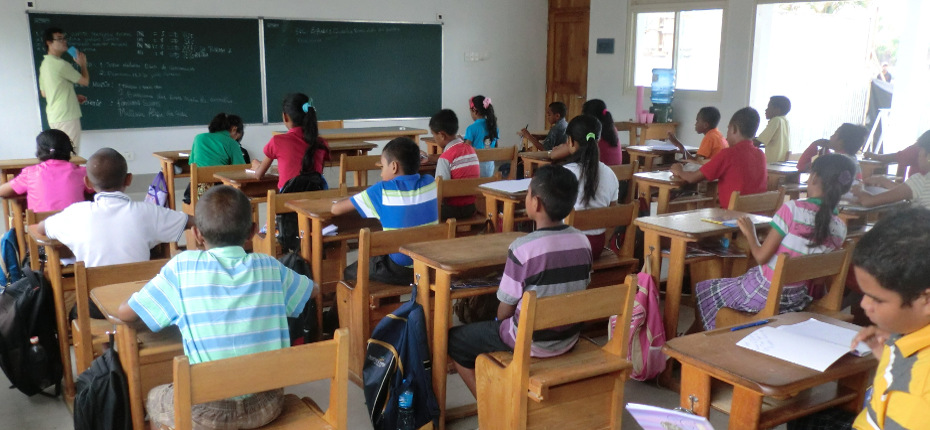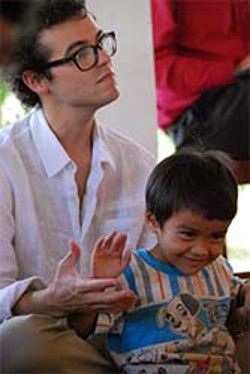
In 2012, I was sent to East Timor to work with a team of Jesuits and lay people in order to open a new school, Colégio Santo Inácio de Loiola, in the small village of Kasait, on the outskirts of Dili, the capital of this young and charming country. I wonder why history books, while telling us the great deeds of the past, have silenced the “untidy truth of their beginnings”.
Hope can be messy! When we opened the school, the buildings were not yet finished and we were (well, I was) obviously unprepared for so many challenges; but still, there was a distinguishable joy abiding those “chaotic” first steps.
To be exposed to a completely different culture and having to learn a new language were, in itself, experiences of rebirth. The fact that we missionaries, when we arrive to a new country, know nothing of that world helps us to start our mission the right way: in a manger, being “small”.

This is probably the refrain I brought with me from Kasait in East Timor to 9 rue Raynouard in Paris, under the shadow of the Eiffel Tower. Although still missing the people, the trees and the mountains of East Timor, I can hardly complain for being in Paris! People say that our studies are essentially an exercise of “intellectual conversion”: not simply to think more effectively, but mostly to think more theologically (or from God). The fact that we “land” on theology after having been grounded on the mission first can only contribute to make this intellectual conversion not simply a question of discourse but, on the contrary, a form of embodiment of the things we have experienced: “let them become word”. The comprehension of the “things of God” goes along with the reflection upon the “things of humankind and other creatures”. But this period of theology, for me, is not only a question of “integration of the past”. Where there were luxurious mountains before, now there is this profusion of architecture, monuments and museums. There is still much to learn; there will be much to share. [Jesuits in Europe news bulletin]
Rui Fernandes SJ, 33, is a Portuguese scholastic who did his Regency in Timor-Leste. After three years there, he is now completing the second cycle of studies in theology at Centre Sèvres in Paris.






